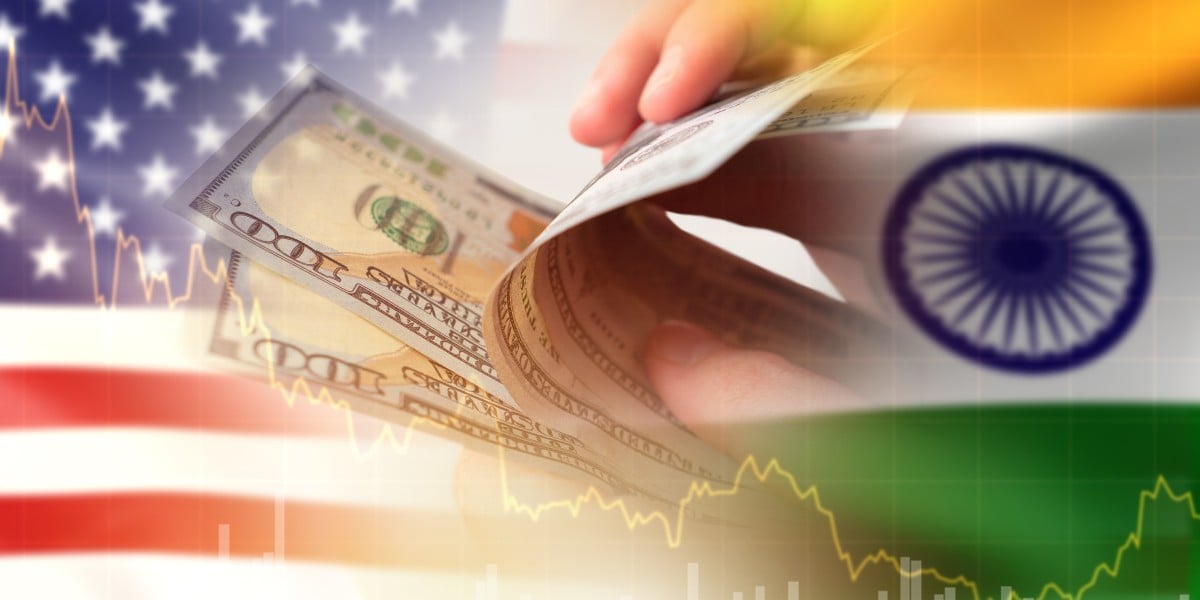India Ditches Its 'Google Tax', Perhaps To Tickle Trump And Dodge Tariffs

The lower house of India's parliament on Tuesday passed the nation's budget for 2025, after making a last-minute change that removed a tax on digital ads.
The tax is called an equalization levy, and since its introduction in 2016 has seen non-resident companies required to pay 6 percent of earnings derived from digital advertising. The measure was nicknamed the "Google Tax" and according to Indian media raised INR 3,343 Cr ($390 million) in the last financial year.
In a Tuesday speech, finance minister Nirmala Sitharaman told India's parliament she proposed to remove the levy from nation’s budget "so that we can address the uncertainty in international economic conditions."
The minister didn't elaborate on what those uncertainties might be, but Indian media has suggested the decision to drop the levy is a response to Donald Trump's administration's threats to impose "reciprocal tariffs" on any nation that dares to tax US businesses.
Under that interpretation, dropping the levy is seen as a pre-emptive capitulation that could spare India's tech businesses the prospect of having tariffs imposed on their exports to the USA.
As India is currently trying to become an electronics manufacturing and export powerhouse, US tariffs on made-in-India goods could be a setback.
- India investigates whether Uber makes iPhone users pay more to ride
- India wants backdoors into clouds, email, SaaS, for tax inspectors
- Trump administration threatens tariffs for any nation that dares to tax Big Tech
- China sticks antitrust probe into Google amid retaliation for Trump import tariffs
India has already dropped a 2 percent equalization levy it imposed on foreign e-commerce companies that supply goods to Indian residents. Sitharaman ditched it last year, citing its ambiguity and the substantial compliance burden it imposed on stakeholders.
That change, however, was made after introduction of the Organisation for Economic Co-operation and Development's (OECD's) global minimum tax plan that aimed to ensure prevent global businesses – and especially tech companies – pay tax in the jurisdiction where they operate. Big Tech companies have often chosen to officially locate their businesses in countries that charge low rates of tax or offer tax minimization schemes.
Once the OECD deal was in place, India therefore felt the e-commerce levy may have outlived its usefulness because tech companies would pay tax under other rules.
The same reasoning could explain its dropping of the digital ads levy.
However the timing of the decision to drop the equalization levy is also notable, as Trump has said he'll make a major announcement about tariffs on April 2nd but also dangled the possibility of exemptions for some countries.
This is not the first time Uncle Sam has fought taxes like India's equalization levies: in 2021 the Biden Administration imposed a 25 percent counter-tariff on nations that introduced digital services taxes designed to force Big Tech companies to pay more tax but later suspended them once implementation of the OECD tax deal commenced.
The Trump administration has since opted out of the OECD tax plan and said it has no force in the USA. Big Tech companies may therefore again be able to reduce their global tax bills. If that happens, India’s decision to drop the advertising equalisation levy could mean it avoids tariffs but also loses two sources of revenue. ®
From Chip War To Cloud War: The Next Frontier In Global Tech Competition
The global chip war, characterized by intense competition among nations and corporations for supremacy in semiconductor ... Read more
The High Stakes Of Tech Regulation: Security Risks And Market Dynamics
The influence of tech giants in the global economy continues to grow, raising crucial questions about how to balance sec... Read more
The Tyranny Of Instagram Interiors: Why It's Time To Break Free From Algorithm-Driven Aesthetics
Instagram has become a dominant force in shaping interior design trends, offering a seemingly endless stream of inspirat... Read more
The Data Crunch In AI: Strategies For Sustainability
Exploring solutions to the imminent exhaustion of internet data for AI training.As the artificial intelligence (AI) indu... Read more
Google Abandons Four-Year Effort To Remove Cookies From Chrome Browser
After four years of dedicated effort, Google has decided to abandon its plan to remove third-party cookies from its Chro... Read more
LinkedIn Embraces AI And Gamification To Drive User Engagement And Revenue
In an effort to tackle slowing revenue growth and enhance user engagement, LinkedIn is turning to artificial intelligenc... Read more

